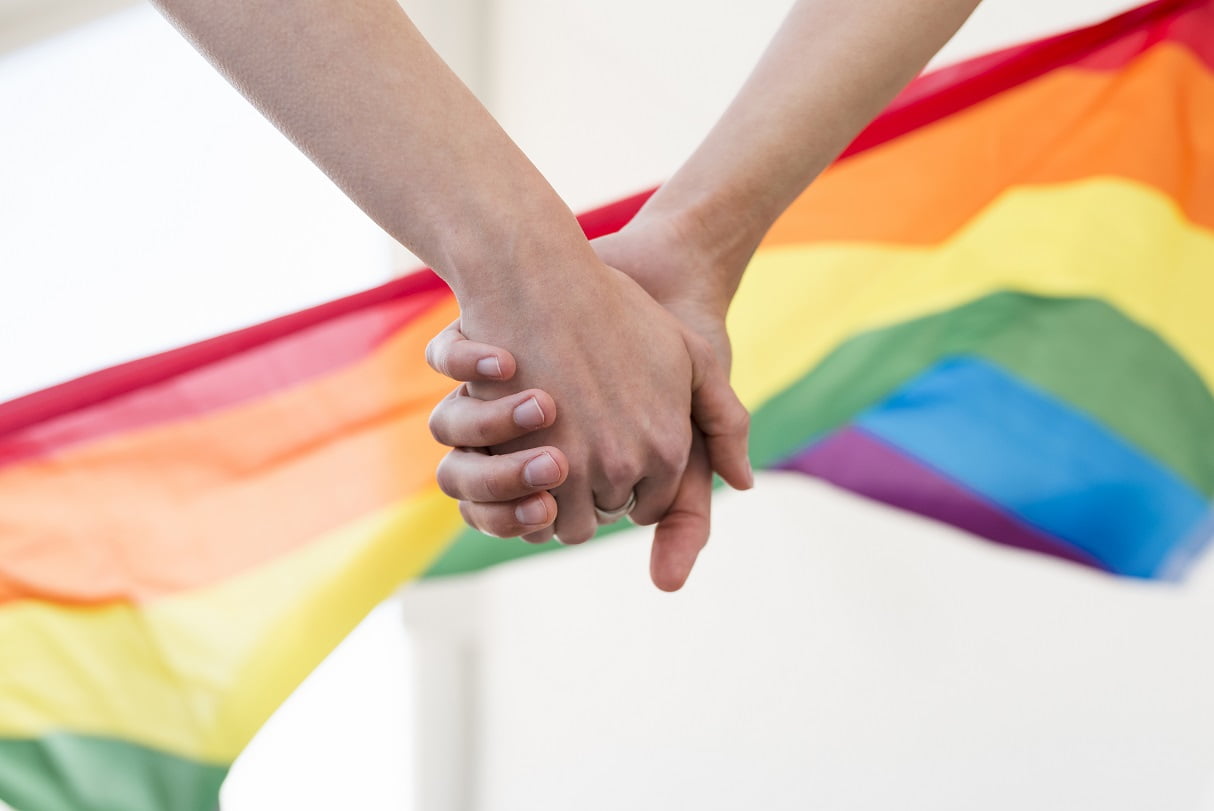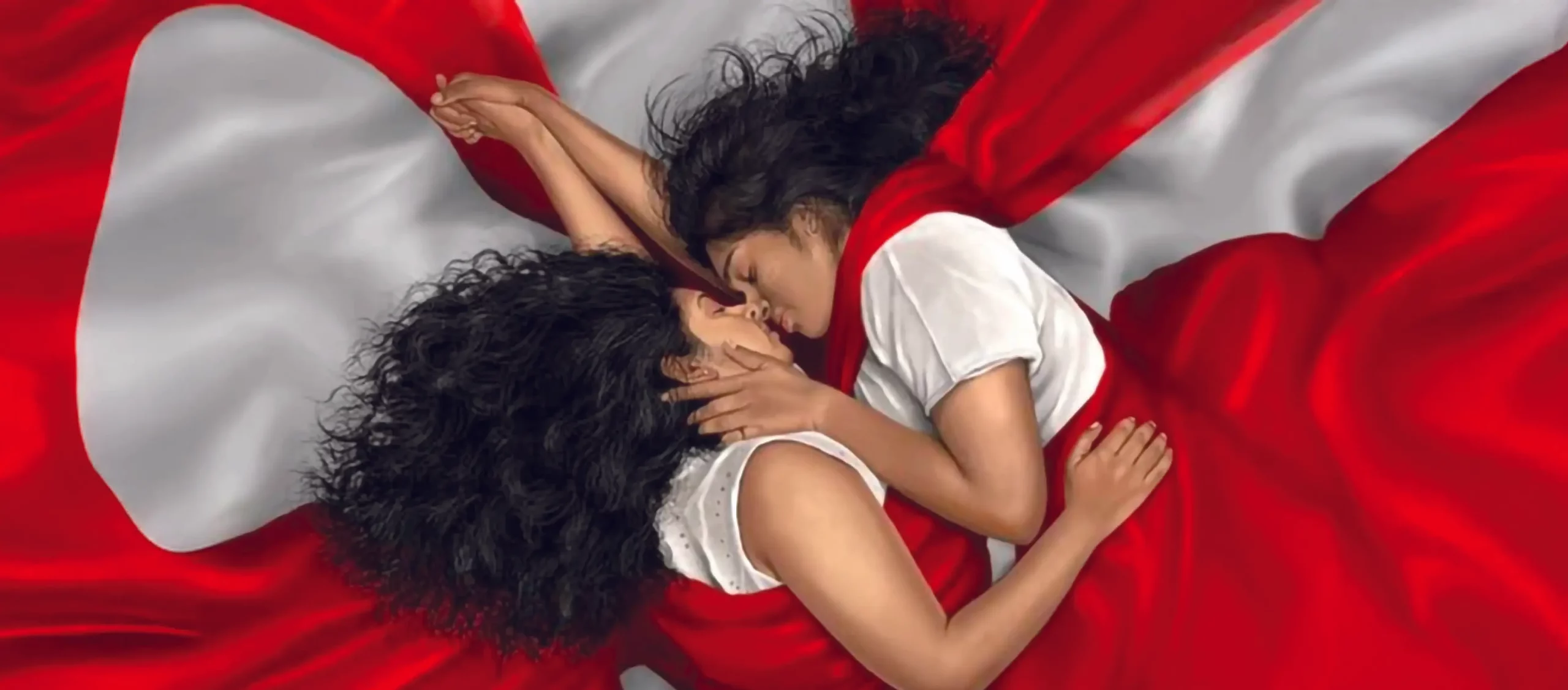Section 377 of the Indian Penal Code (IPC) which criminalised homosexual relationships by defining them as sexual intercourse “against the law of nature” was introduced in India in 1861 under British rule. A few parts of the section were revoked by the Delhi High Court in 2009. However, that particular judgement was later overturned by the Supreme Court of India in 2013.
In a landmark judgement in 2018, the section was declared unconstitutional by the Supreme Court with homosexuality finally getting decriminalised in India. While queer individuals were then legally allowed to have sex in the country, the state still did not give them the right to get married or adopt children as a couple. In other words, the decriminalisation of Section 377 did not automatically mean that the members of the LGBTQI+ community were granted the same rights as other citizens.
A few queer activists have referred to marriage as an oppressive system and that the “Marriage Project” doesn’t deserve to be prioritised like the other more serious issues that the members of the community constantly face. However, all of us need to realise that depriving the queer community of the right to get married takes away their right to equality which is mentioned in the constitution. In other words, queer persons should be allowed the same formal and legal acknowledgement of their relationships that heterosexual people don’t have to fight for.
Sanky Donthi, an Indian queer person currently studying in London elaborated upon the aforementioned by stating:
“I feel marriage is a patriarchal construct that needs to be phased off as it normalises and reaffirms a lot of power structures that every organised religion upholds. That being said, I also feel that every civil, romantic, consensual partnership should be given the same legal status, irrespective of the number of people involved in it and the gender identities of those people.”
Another young Indian queer person who wishes to remain anonymous shared similar thoughts. They mentioned:
“The legalisation of marriage is a very basic right that should exist in the country. However, this entire issue is much more nuanced than that. Currently, the debates centred around homosexual marriages in our country really focus on the ‘same sex’ aspect of it which takes away the rights of a lot of trans people. A lot of these movements are extremely gay cis-men centric.”
Even though it is important to be inclusive of all members of the LGBTQI+ community while talking about queer marriages in India, currently, it is only the homosexual cisgender men who have the privilege to up legal battles and to address their issues publicly through the Indian media.
Also Read: On Legalising Same-Sex Marriages Under The Special Marriage Act
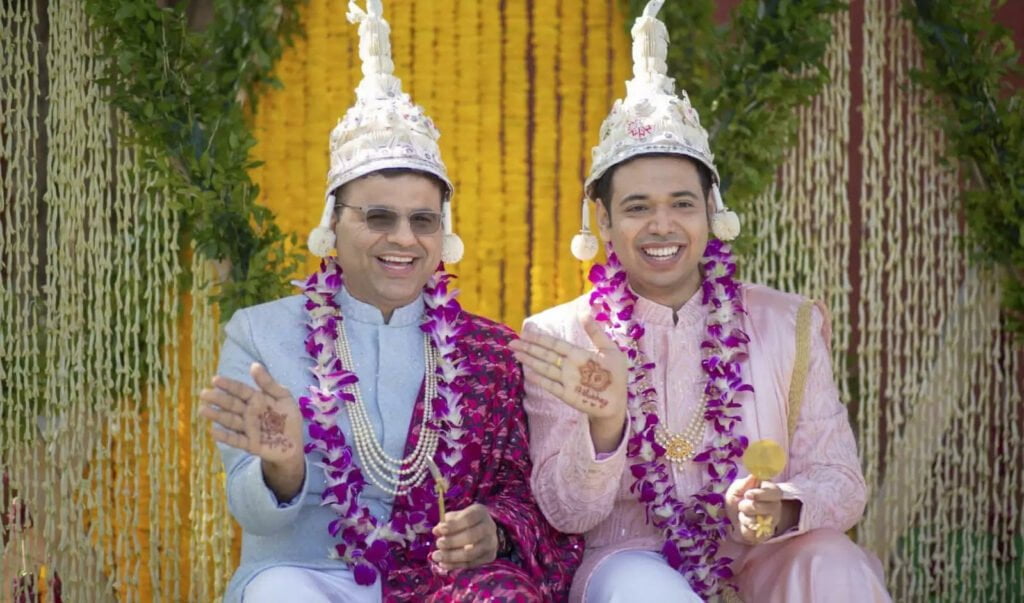
To fight for their legal rights, four Indian queer couples filed petitions with the Supreme Court in November last year. The petitions focused on the Special Marriage Act, of 1954 and aimed to question its constitutionality concerning people from the LGBTQI+ community. The first one was filed by Supriyo Chakraborty and Abhay Dang—Telangana’s first gay couple to get married—who have been together for over a decade now. The two of them explained that despite them having had a “big fat Indian wedding“, there were still multiple things that they could not do together as a couple due to them not being married in a legal sense.
Alongside them were businessman Uday Raj Anand and his partner Parth Mehrotra, the chief editor of Juggernaut Books. Anand and Mehrotra have stated that they have two children together, but one of them is not a legal parent to those two. While delving deeper into the legalities involved in raising their children, Anand mentioned, “. . . on paper, one of us doesn’t have any relationship with these children. So, what happens if he (Mehrotra) were to pass away? The children would have no rights to his estate.”
Another couple out of the four who filed petitions include Utkarsh Saksena and Ananya Kotia whose story was recently reported by Indian media sites. The former is a public policy scholar at the University of Oxford while the latter is an economics scholar at the London School of Economics. The two have been together for the past 15 years and wish for their relationship to be as normal—both socially and politically—as any other relationship in the country. Much like Chakraborty and Dang, Saksena and Kotia also plan to have a grand wedding ceremony once the Supreme Court grants them the legal right to get married. The four couples are currently being backed by a team of influential lawyers who include openly gay person Saurabh Kirpal.
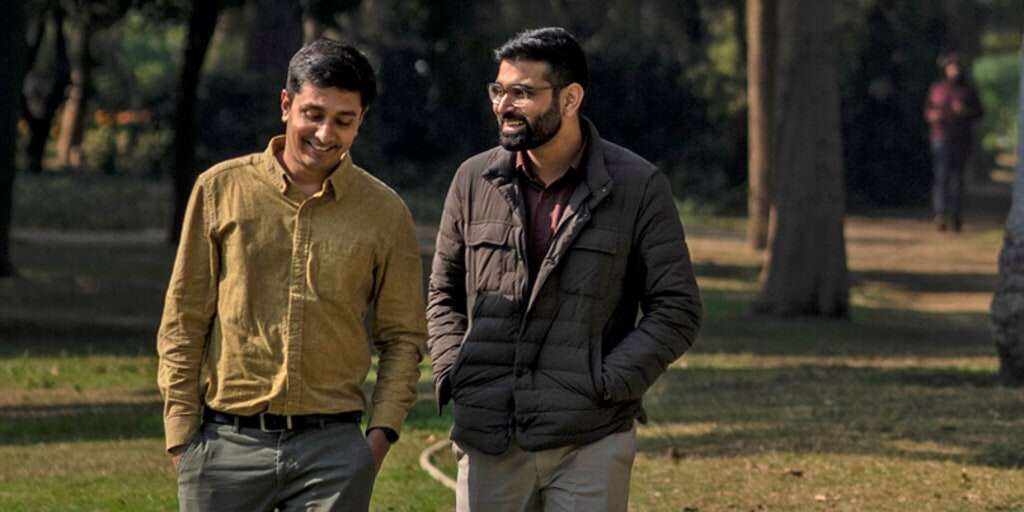
Around a month after the couples filed their petitions, BJP MP Sushil Kumar Modi made a few problematic statements in the parliament to oppose the legalisation of homosexual marriages. The MP stated that marriage in Indian society is a sacred, “centuries-old” institution meant for “biological” men and women. He went on to refer to the ones pushing for the legalisation as “left-liberal demotic people” who wish to emulate the west.
Kumar Modi also added that same-sex marriages would weaken the personal laws within the country relating to the adoption of children, the divorce between couples and even domestic violence. All of these reasons, as can be understood, were not only homophobic but extremely misogynistic. He ended his speech with an attempt to instigate the ones around him to strongly oppose the legalisation of same-sex marriages.
To make matters worse—for the right wing, not for the LGBTQI+ community—United Hindu Front, a religious right-wing group protested outside the gates of the Supreme Court while the petitions were being heard. The arguments used by the group were similar to the ones presented by Kumar Modi as they continued to stress that homosexuality is against Indian culture. However, the Supreme Court still decided to consider the legal recognition of same-sex marriages and gave the Union Government time till the 15th of February to respond the same.
Despite that, it is difficult to expect the Hindu nationalist ruling party to be in favour of the legalisation of queer marriages. After all, they had taken issue with making the Hindu Marriage Act, 1955 more inclusive even in 2020.
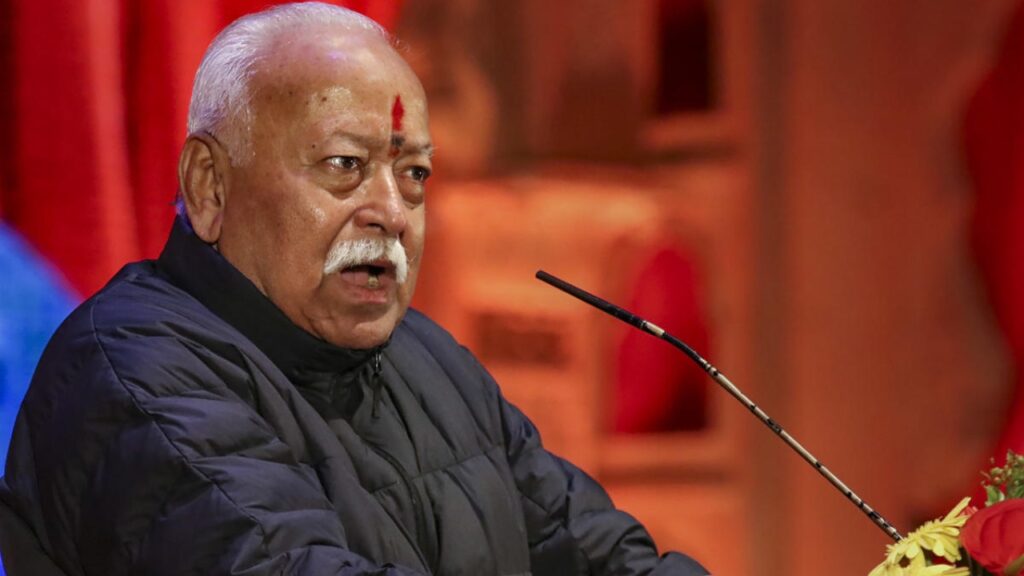
The right-wing soon received backlash and criticism and then attempted to make amends for everything. This was done when the Rashtriya Swayamsevak Sangh (RSS) chief Mohan Bhagwat was heard extending public support to the LGBTQI+ community. Bhagwat contradicted Kumar Modi’s words by saying that LGBTQI+ persons have always been a part of India, particularly Hindu culture and mythology. He substantiated his claim by narrating a story of Hamsa and Dimbaka—two characters from Hindu mythology, who, according to Bhagwat, was gay.
Bhagwat, nonetheless, failed to create the desired impact on the Indian masses due to his Hindu-centric rhetoric which was also inherently Brahminical and left out a huge part of the non-Hindu population within the country. It must also be noted that even if Bhagwat showed acceptance towards queer people, he did not comment on the legalisation of their marriages.
Most of us Indians are aware of the fact that the right-wing leaders of our country do not support the LGBTQI+ community, no matter how much they try to portray the opposite. Even when homosexuality had been decriminalised in the country, the right continued to openly exclaim that despite it not being a crime, the relations were still unnatural and undesirable. Thus, Bhagwat’s comments about homosexual individuals being an integral and constant part of the Indian community can not be considered the views of the entire right wing.
Also Read: 3 Loopholes In The Push For Same-Sex Marriages In India

If the Supreme Court ends up legalising same-sex marriages, it will be in the form of a landmark judgement for the entire country. With that, India would become the second Asian country after Taiwan to provide legal recognition to queer couples and the largest democracy in the world to allow the same. The modification in the Hindu Marriage Act will further help a lot of couples maintain their faith in the Indian government in addition to empowering queer persons to be able to become more open about their identities and relationships.
About the author(s)
Upasana is a master’s student at SOAS, University of London where she is pursuing a degree in South Asian Area Studies. She is an avid blogger and a film reviewer which means that she is currently struggling to balance her time between Netflix and her grad school commitments. When not reading, writing or binge-watching something, she can be found having deep conversations with her close friends or complete strangers about the most random things under the sun.
